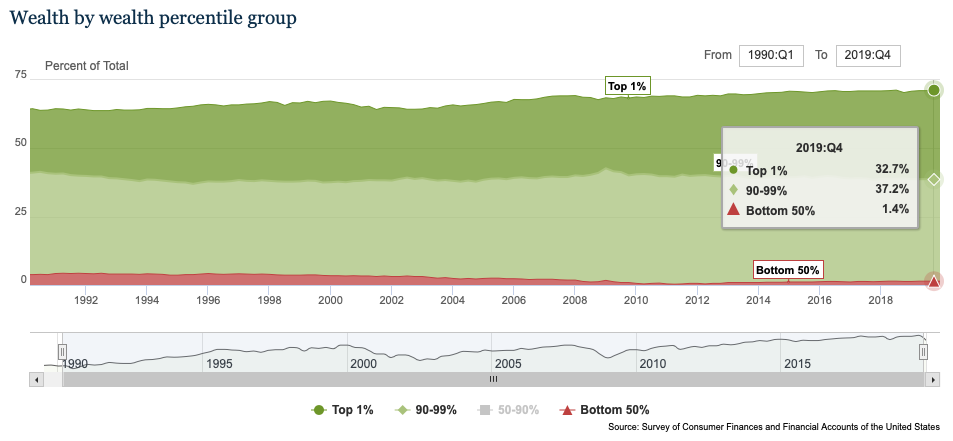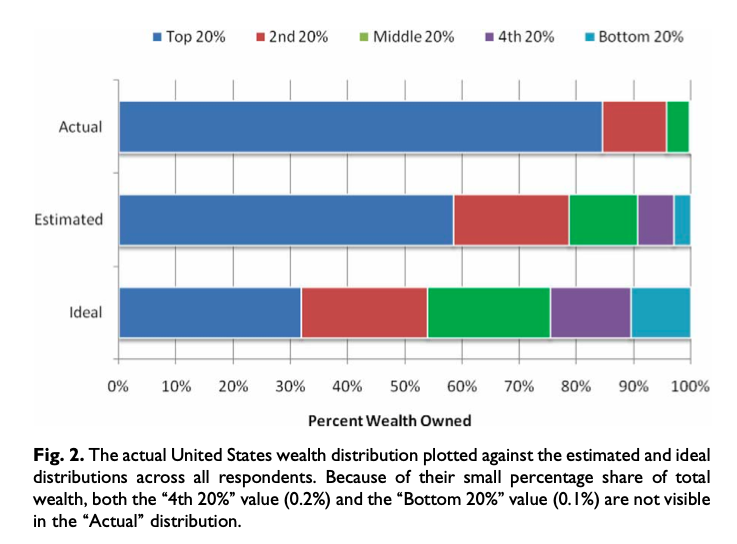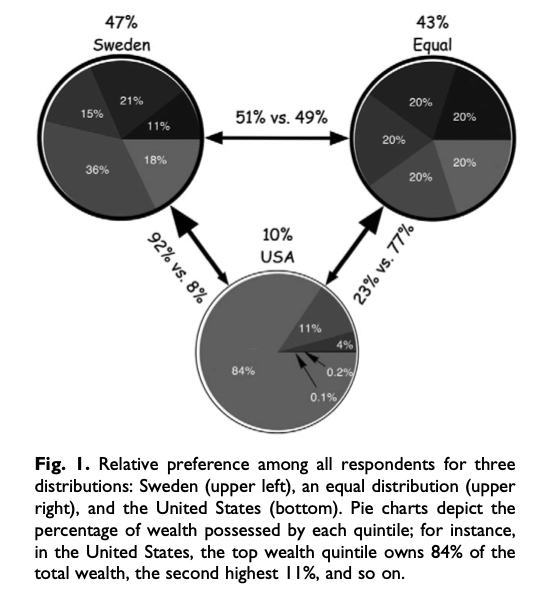
How unequal is your piece of the economic pie?
Many forms of Government have been tried, and will be tried in this world of sin and woe. No one pretends that democracy is perfect or all-wise. Indeed it has been said that democracy is the worst form of Government except for all those other forms that have been tried from time to time.… – Winston Churchill
This rather famous quote from Churchill could easily be applied to capitalism – It’s the worst form of an economic system, save all others that have been tried. If you look at it’s strengths, it has lifted more people out of poverty in a shorter period of time than any other economic system humankind has tried. And yet, it has also led to some of the most concentrated pools of wealth and power in US history as well, with the Guilded Age of the 1880s and the world we are living in today as the prime examples of that. Indeed over the last 20 years the concentration of wealth has increased so dramatically at the top, that most people can barely even comprehend what this means. So my question to you would be
“Are you satisfied with your slice of the economic pie?”
My guess is that your answer to this question reflects two variables.
1) are you among the top 10% that has the largest amount of wealth in the United States. If you are not, then you most likely would answer that you aren’t satisfied or happy with your slice.
2) the second variable is whether you are measuring your answer on an absolute or relative measure of what you need.
Human nature tends to focus on relative metrics, and if that anchors your values, then you are rarely satisfied. Even if you are part of the 0.1% and worth $100 million and have a Ferarri, there’s someone down the block that has $1 billion and two Ferarris that you may feel a competitive pull to want to get even with. While, those individuals with absolute worldviews can often take a different approach. Even if they are part of the bottom 90% and making $75,000/year, they could be happy if that enables them to have a decent house, good food and a healthy family and friends. So my belief is the second variable (absolute vs. relative world view) is likely more important than the first, as you can find people across the spectrum of wealth that would answer they’re fine where they are and mean it.

How close were you? If you look at the actual numbers, it’s pretty shocking that most people have a very skewed view of distribution and think it’s more equal than it actually is even though they rightfully assume the top 10% have quite a lot. The Federal Reserve data indicates that the bottom 50% had 4.3% of wealth in 1993, and that has declined to 1.4% at the start of this year. At the same time, the top 10% now have over 70% of the wealth. There’s a survey from 2010 (admittedly quite dated now and the inequality is even worse than it was back then) that highlights this.

Dan Ariely and his team asked people how they thought wealth was allocated, and they almost all underestimated the concentration of wealth at the top. When you consider that the bottom 40% had only 0.3%, it’s not surprising that most individuals misjudged the allocation. Ariely and his team then asked what people would ideally want among three scenarios. 1) the status quo 2) the distribution that Sweden has (among the most even in the world) or 3) a middle ground that would be more equitably distributed than the US, but not as even as Sweden.

Interestingly, only 10% like the current system, and more people would prefer an equitable solution. If you look at the percentages in the responses, a sizable chunk of the top 20% that are doing fabulously well think the system should be changed, even if it would negatively affect their net worth. Over the last few years, I’ve been trying to wrap my head around why our market-based economy system has led to the greatest reduction in poverty globally, but in the wealthier economies has led to this extreme concentration of wealth and power? How has this happened if the vast majority of people indicate they would prefer a different distribution of society’s resources? This is the focus of a future article I’ll write, but in the interim, it’s worth reflecting on the question again and asking how much of your answer to the question is driven by an absolute vs. relative worldview?